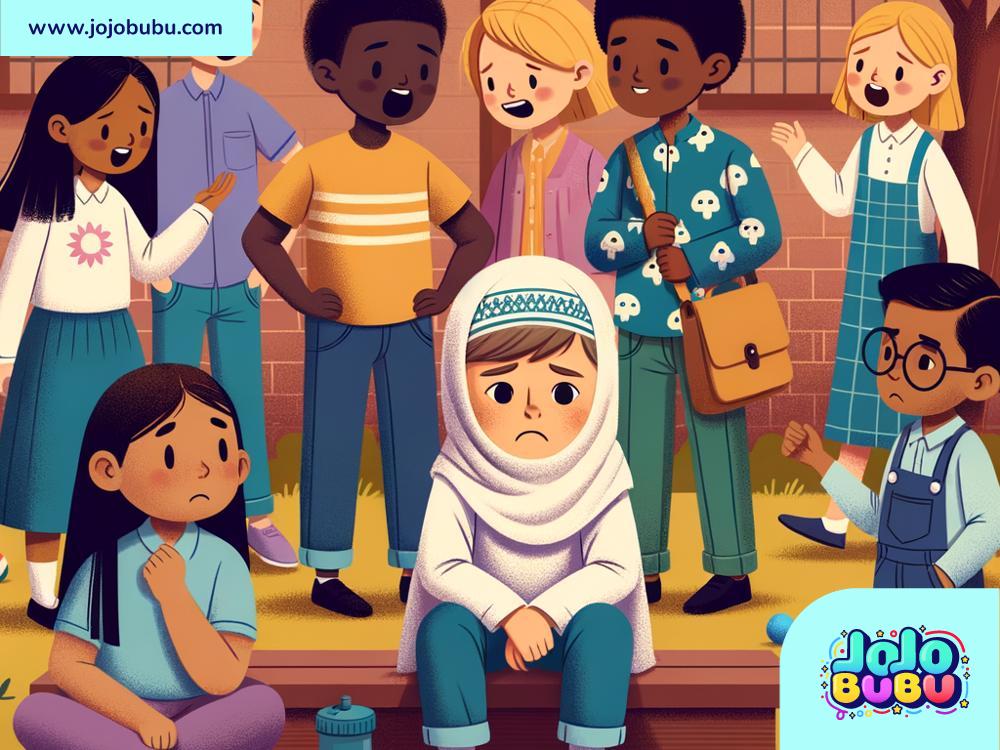Recognizing Bullying: What You Need to Know
Bullying is a serious problem that can affect people of all ages, from kids and teens to adults. It hurts feelings, damages confidence, and can even lead to mental and physical health problems. Recognizing bullying is the first step in stopping it, and it’s important to understand what it looks like and how it makes people feel. In this article, we’ll talk about what bullying is, how to spot the signs, and what we can do to help.
What Is Bullying?
Bullying is when someone hurts or scares another person on purpose. It often happens more than once, and it’s aimed at making the other person feel bad, weak, or powerless. Bullying can take different forms, such as:
- Physical bullying: This includes hitting, pushing, kicking, or damaging someone’s belongings.
- Verbal bullying: Saying mean things, teasing, calling people names, or making fun of them.
- Social or relational bullying: Excluding someone, spreading rumors, or embarrassing them in front of others.
- Cyberbullying: Using phones, social media, or other online tools to send hurtful messages, share mean comments, or post unkind photos.
Bullying can happen anywhere—at school, at work, online, or even at home. It’s not “normal behavior,” and it’s never okay.
How to Recognize Bullying
Sometimes, bullying is easy to see. For example, if you notice someone pushing or yelling at another person, it’s clear that something hurtful is happening. But other times, bullying can be harder to spot. Here are signs to look out for:
Signs Someone Is Being Bullied:
- Changes in mood: They might seem sad, quiet, or more anxious than usual.
- Avoidance: They may try to avoid certain places, people, or activities. For example, they don’t want to go to school or work.
- Physical signs: You might notice bruises, cuts, or things like torn clothes that could indicate physical bullying.
- Problems with sleep: They may have trouble sleeping or seem extra tired.
- Loss of confidence: They might stop trying new things, lose interest in hobbies, or doubt themselves more than usual.
- Drop in grades or performance: In school or at work, bullying can make it hard for people to concentrate.
- Changes in eating habits: Eating too much or too little can be a sign of emotional distress caused by bullying.
Signs Someone Is Bullying Others:
- Using mean words: If someone is often teasing, insulting, or joking about others in a mean way, it could be bullying.
- Aggression: They may use physical force like pushing or hitting.
- Excluding others: Refusing to let someone join a group activity or gossiping can lead to bullying.
- Power imbalance: Watching how they treat those who may appear smaller, quieter, or more vulnerable is important.
Sometimes, a bully doesn’t realize their behavior is hurtful. Other times, they do it on purpose to show off, make themselves feel powerful, or fit in with others.
Why Recognizing Bullying Is Important
Bullying can cause serious harm. It lowers self-esteem, makes people feel alone, and can lead to stress, depression, or even thoughts of self-harm. For children and teens, bullying can affect their learning and friendships. For adults, it can disrupt work performance and relationships. Early action can prevent bullying from getting worse.
How Can You Help?
If you suspect that someone is being bullied—or even if you think someone might be bullying others—there are ways you can help. Here’s what to do:
If Someone Is Being Bullied:
- Talk to them: Let them know you care and that it’s okay to share their feelings. Ask simple, open-ended questions like, “Are you okay?” or “Do you want to talk?”
- Encourage them to get help: If the bullying is happening at school, talk to a teacher or principal. At work, they can approach HR or a supervisor. Online bullying can be reported through social media platforms or authorities.
- Support them: Remind them that it’s not their fault and that no one deserves to be treated poorly.
If Someone Is Bullying Others:
- Address their behavior: Talk to them kindly but firmly. Let them know their actions are hurtful and not acceptable.
- Show empathy: Sometimes, people bully because they’re dealing with their own problems. Encourage them to think about how their actions affect others and suggest healthy ways to cope with stress or insecurity.
- Involve a trusted adult or authority: If the bullying is serious, it’s okay to tell a teacher, manager, or another trusted person who can help stop it.
For Everyone:
- Teach kindness: Remind friends, family, and coworkers to treat everyone with respect.
- Speak up: If you see bullying happening, don’t stay silent. Stand up for the person being bullied, but in a safe and calm way. For example, saying “That’s not cool” or “Please stop” can make a big difference.
- Be a positive role model: Practice kindness and show others how to create a welcoming and supportive environment.
Bullying Is Everyone’s Responsibility
Recognizing bullying and taking action doesn’t just help the person being bullied—it helps create a safer and kinder world for everyone. By standing against bullying and showing empathy, we can create communities where everyone feels valued. Remember, each of us has the power to make a difference. Let’s use it wisely.

